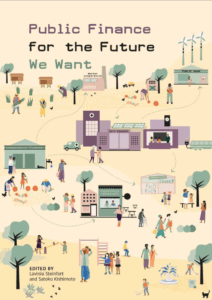24/06/2019
Under: Asia/World, Systemic Alternatives
Today, private finance has not only failed to address these problems, it has intensified them. The public does not have to rely on the private sector. Public funds are much bigger than we imagine: equivalent to 93 per cent of global GDP. Public banks have enough resources to raise the many trillions needed to invest in public services and climate infrastructure, without having to turn to private financiers.
This book presents visions of regenerative and redistributive economies, built with collective power: from the thriving cooperative economy in Kerala, India, to the hundreds of local saving banks in Germany, the worker-owned bank Banco Popular in Costa Rica, and the thousands of People’s Credit Funds in Vietnam. It explores models that could become the new normal—the basis for a democratically organised and life-sustaining future.
The real-world examples in this book demonstrate that a political economy that curbs the power of big finance and serves people and planet is possible. The ideas shared here are timely and urgent—a call to readiness before the next financial bubble bursts.
Download the executive summary here.
Published by Transnational Institute (TNI), The Democracy Collaborative, Change Finance, Focus on the Global South, New Economics Foundation, Fairfin, MOBA Housing Network, Tellus Institute






